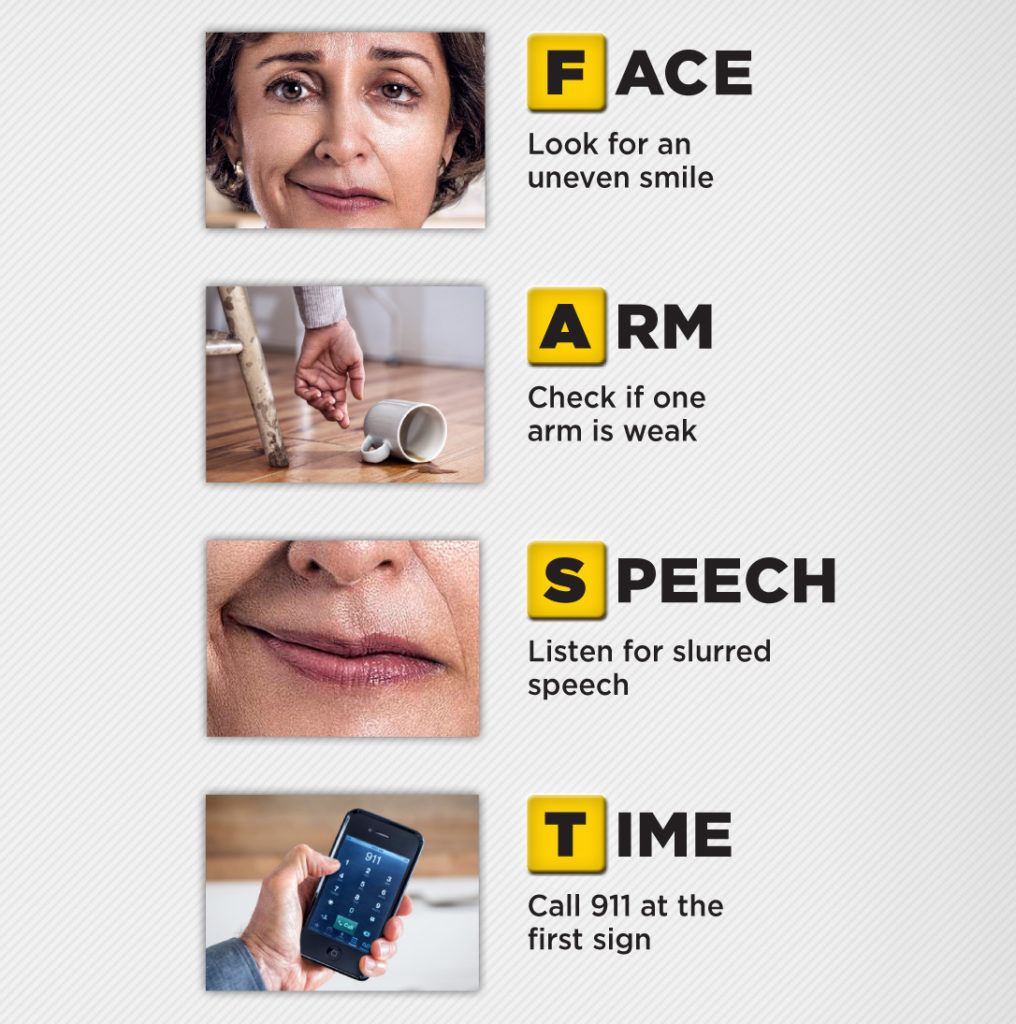“Every minute counts when dealing with a potential stroke situation – so if you think you’re having a stroke, call 911 immediately so you are taken to the nearest hospital with the advanced training and resources needed to provide the most appropriate care!” says Debbie Moser, RN, BSN, Coordinator for the nationally-certified Advanced Primary Stroke Center at Northern Hospital of Surry County.
“Our certification means that we have a dedicated response, available 24/7, who work in a carefully orchestrated manner to swiftly evaluate, diagnose and treat a patient who may be having a stroke,” adds Moser, who also serves as the hospital’s Staff Development Coordinator.
“As soon as we’re notified that a stroke patient is en-route or has arrived, a “Code Stroke” is called in the hospital signaling our stroke team into action. We meet the patient at the door and quickly transport him or her to the Imaging Center for a CT head scan so we can determine the cause of the stroke – which will then dictate the treatment to be given,” explains Karen Hagen, RN, CEN, Director of Emergency Services. “Our [laboratory] staff also responds to the Code Stroke and quickly obtains blood samples. At the same time, we are arranging for a telemedicine consult with a neurologist, who is able to speak directly with the patient and/or family members about the patient’s condition and recommend course of treatment.
“All of our initial evaluation efforts are performed quickly and seamlessly so we are able to initiate treatment as soon as possible to reduce or eliminate neurological deficits that may result from the interruption of blood to the brain,” adds Hagen, who notes that Northern treats approximately 20-30 patients as a Code Stroke per month.
Depending on the severity of symptoms and cause of the stroke – be it a blood clot (87% probability) or a bleed in the brain (13% probability) — the patient may be given a highly-effective clot-busting drug on-the-spot and admitted to the hospital or given appropriate medications and quickly transported to one of two Comprehensive Stroke Centers in Winston-Salem, where a delicate clot-retrieval procedure is performed in a Catheterization Lab. Similar to a heart catheterization, the procedure involves threading a catheter through a major artery in order to grab and remove the clot in the brain.
The Silent Killer
According to the Centers for Disease Control and Prevention (CDC), stroke is the fifth leading cause of death for Americans – killing about 140,000 individuals each year. More than 795,000 people in the U.S. ha ve a stroke every year; with about 610,000 of those cases being first or new strokes. Stroke is also the leading cause of serious long-term disability, with strokes reducing mobility in more than half of stroke survivors age 65 and over. Speed is essential—both in recognizing the signs of a stroke and then getting medical attention. The most common symptoms of a stroke are facial drooping, arm weakness and slurred speech. [See “Act FAST – Call 911” sidebar.]
The Golden Hour
“When we say that every minute counts, we mean it,” says Jason Edsall, MD, Chief of Staff for Northern Hospital and Medical Director of the Stroke Center. “The sooner we provide appropriate treatment to a stroke patient, the less chance they will suffer significant or long-term neurological deficits.
“Our goal is to get patients to the functional status they had before the onset of symptoms,” he continues. To achieve the optimal outcome, patients should try to get to the hospital within 60 to 90 minutes (or less) of when symptoms first appear. “We’ll take it from there,” says Dr. Edsall, adding that “our procedures are so streamlined that our typical door-to-needle time is under 60 minutes.”
Achieving Recognition for Excellence
Since joining the Emergency Medicine physician staff for Northern Hospital in 2002, Dr. Edsall had been a strong advocate for establishing a stroke program that would be recognized by national peers for its commitment to excellence in patient-care. Buoyed by his enthusiasm and determination, the hospital’s other clinicians and administrators worked collaboratively to design and implement the crucial clinical pathways and protocols needed to achieve such independent certification for excellence.
Karen Hagen, who has directed the ED operations for the past four years, remembers well the long hours and hard work put into creating a nationally-ranked stroke program. “One of the most rewarding things for me has been to help drive the process-change needed to achieve certification of our Stroke Program,” she said. The time and effort paid off! Since February 2016, Northern Hospital’s program has been certified as an Advanced Primary Stroke Center by The Joint Commission, the nation’s leading accreditation organization for hospitals. “Today, there’s not a single person on staff who doesn’t understand and know how their role fits into ensuring high-quality care for stroke patients.”
For more information about Northern Hospital’s certified Advanced Primary Stroke Program, visit our website at website.

